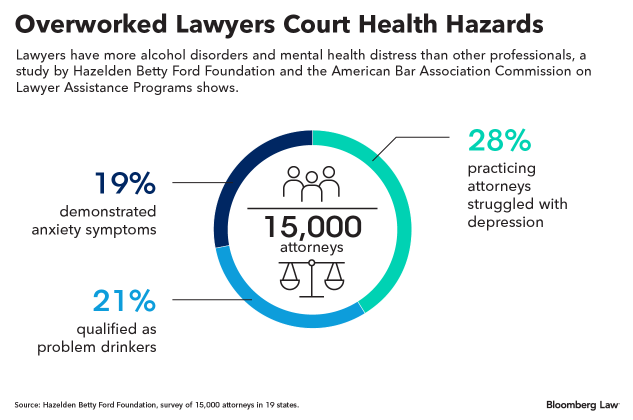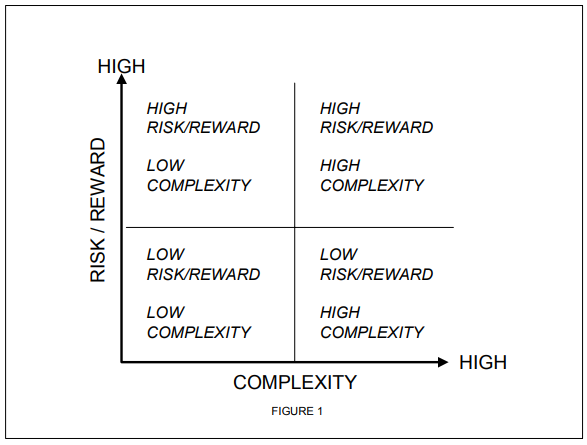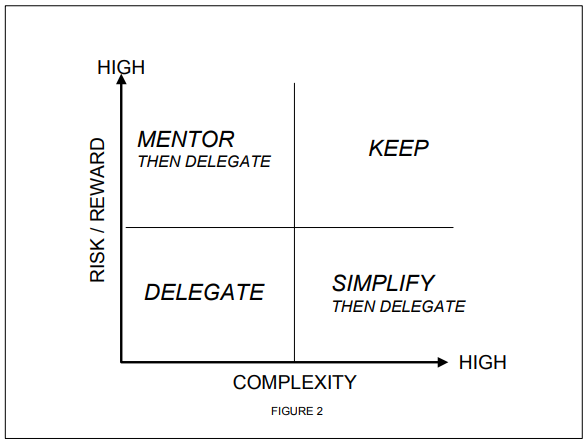
Are you working too hard?
Many attorneys feel they’re forced to make a terrible choice. Between their family and work. Or their body and sanity over work. As the demands on attorneys go up, their ability to cope falls.
You’re expected to do more with less.
What if you’re running your own firm? The expectations are greater.
These expectations take a heavy toll
Expectations are high for attorneys.
You’re expected to hit your billable quotas. To go above and beyond for clients. To bring new clients into the firm. To Network. And on and on.
There simply isn’t enough time.
To complicate things further, the expectations placed on you are climbing. Day-by-day you’re expected to produce more value for your clients and your firm. Hourly rates are climbing as actual billable hours fall. Why?
Firms aren’t doing enough.
That’s the strange conclusion researchers came to in the “2018 Report on the State of the Legal Market.” That sounds ridiculous, doesn’t it?
So what’s really going on here?
Attorneys, partners, firms – they simply don’t have the time they need to make big changes. They’re overwhelmed, buried under a mountain of work. According to the 2017 State of U.S. Small Law Firms study, 70 percent of firms feel they spend too much time on administrative work.
That’s non-billable work. So what’s the solution?
Attorneys, you’ll have to work even harder
Wait a minute. That’s unreasonable.
For many firms and practitioners, that’s also impossible. Many legal professionals are already being pushed to their limits. Burnout and mental health issues are already a problem in the industry. It’s not a viable long-term strategy.

It’s no secret.
Most attorneys spend more time on non-billable work. Client intake, business development, bookkeeping, marketing – these are all tasks that can (and should be) done by someone else.
So why isn’t this happening?
Many attorneys aren’t sure where or how to start. They’re not sure where they should be dedicating their time and effort. It’s much easier to avoid the problem instead.
Seriously, why bother?
The support you bring on, they won’t be able to do it as well as you. That’s the rationale, right?
It’s true.
With the right professional on your team, these tasks can be done better. But that’s the frightening part. Are you truly indispensable to your firm if you’re no longer needed? As you’ll soon see, delegating important tasks increases your value to your firm.
Why your value grows when you delegate
It gives you focus.
Delegating enables you to focus on the important tasks that only you can do – protecting your clients, billable work, strategic planning, etc. Over and over we see that attorneys spend more of their time on essential but non-billable work.
Delegating solves this problem.
It enables you to double, triple or even quadruple your productivity. You’re able to get more work done, more than you ever have before – with more free time besides. It sounds impossible, but it isn’t really.
It’s just difficult.
But the alternative is much worse. If you’re willing to do the work the rewards compound with time. Want more time with your family? It’s possible with this system. Interested in networking with key influencers? You can with more free time.
Whatever your aims, delegation helps you achieve it.
You’ve heard this before. It wasn’t helpful the first time
Delegate. Outsource.
This advice isn’t new and it isn’t helpful. It seems that way on the surface, doesn’t it? You delegate and you get things done. Isn’t that what you’re supposed to do to?
Sure. But how do you do that?
It’s never really explained. This advice is simply trotted out and laid at your feet with no context or clarity on how you actually go about delegating your work.
You need a framework.
A framework or system gives you clear instructions covering: (a.) what should be delegated and when. (b.) how to delegate tasks and most importantly (c.) when not to delegate.
This framework is your blueprint.
It’s based on risk, reward and complexity. In The Art of Delegating Legal Work, Norman Clark shares what he calls the delegation matrix. Here, let me show you what that looks like.

Let’s break this down.
The vertical axis covers risk/reward. How important is the task? Is it appropriate to delegate these tasks? Let’s say you fail to deliver fantastic results on a particular task. How serious are the consequences?
This is fairly straightforward, right?
The horizontal axis discusses complexity. How hard is it to deliver adequate to fantastic results? Does it require a lot of specialized training, experience or knowledge? The more complex your task, the harder it is to delegate.

Here’s how you handle the tasks in each quadrant.
- Low risk/low complexity. This work is quickly delegated to an appropriate in-house staff or virtual support team. Data entry, answering the phones, screening calls, client intake, etc.
- High risk/low complexity. This can be routine work that’s fobbed off onto junior associates. But it can also be work that’s easily handled by freelance attorneys who are highly experienced in your particular practice area. This gives you a tremendous pool of talent at dramatically reduced costs.
- Low risk/high complexity. This work isn’t a dramatic risk to your business but it’s still complex enough to warrant independent help. Examples include sales, advertising and marketing, bookkeeping and advanced client intake.
- High risk/high complexity. This where the real magic happens. This is the work you do. It’s billable work and it’s incredibly valuable to you and your firm. It enables you to ring the meter, to dramatically increase your billables. The best part? Delegating the other three quadrants means your billables are higher and you have more free time.
Can you see it?
What you’ll need to do next? The decision matrix has already told you.
You’ll need to build a virtual bench
This is the part most get wrong.
Most attorneys attempt to build a virtual bench when they need it. This primes firms for failure. Think about that for a second. If you have a pressing deadline or a matter that needs to be taken care of quickly, you’re desperate.
That desperation clouds your judgment.
Instead of looking for the best legal professional desperation compels you to look for an adequate legal professional. They’re not the same things.
- Adequate professionals require a significant amount of handholding and patience. They’ll do what you tell them to do but they require constant management and care. These professionals don’t save time, they consume it.
- The best legal professional functions as a trusted advisor. They’re typically specialists who are able to get a significant amount of high-quality work done in a short amount of time. They’re proactive and quick to offer helpful advice, strategies or tactics.
Here’s where things get complicated.
Adequate professionals masquerade as the best. If you’re not sure what to look for an adequate professional will sell you on their ability to get the job done.
Don’t take their word for it.
You’ll need to filter out poor performers ahead of time before they’ve embedded themselves in your firm.
But how?
There’s a simple and straightforward tactic you can use to attract A player all-stars. It’s offensive to some but it’s incredibly effective.
Get adequate professionals to disqualify themselves
How are you supposed to do that?
There’s no way a freelancer or firm will willingly disqualify themselves from consideration. If there’s money to be made the inadequate find a way to get it.
This is true…
If you’re an inexperienced professional yourself.
But you’re not.
Not anymore. How do I know that? I’m about to share a proven strategy you can use to automatically sort through poor performers. The A players rise to the top. The B and C players drop out of the hiring process.
Here’s how it works.
- You place an ad. You outline the specifics of what you’re looking for in your job description. Share requirements, expectations and qualifications needed. You use a tool like JobScore or Recruiterbox to share your ad across multiple platforms instantly.
- Filter candidates with applicant tracking systems and software. There are free options like Qandidate and paid options like Recruiterbox. You’re looking to filter out irrelevant candidates, spammers and You want to minimize the amount of time you spend with non-potentials.
- Create a list of potentials. These are candidates you feel may be a good fit as a virtual assistant for your firm. You can use additional tools like HarQen to automate and semi-automate video and phone interviews.
- You spend a bit By now, you should have a short list of potentials. Let these candidates know you’re willing to spend 10 to 30 percent more on the best professional.
What gives, this sounds like a standard hiring process?
It is, so far.
Here’s the part where we switch things up.
- Ask potentials to arrange an interview. This is a phone interview with the previous client, manager or partner. It should be with someone they’ve worked with, at the organizations they’ve listed on their resume.
Doesn’t seem like much, does it?
But it is. This step is the most significant step in the entire process.
Here’s why.
B and C players, they don’t want you to speak with anyone at their previous firm/company. They know their performance was lackluster or less than adequate. Ask for this and they’ll run.
What about A players?
A players will leap at the chance to arrange an interview. They know they’re exceptional and that they’re amazing to work with. They also know they’ll have no problems getting a former manager or superior on the phone. This is how you get potentials to disqualify themselves.
What happens post-hire?
- Incentivize A players. Ask them to recruit for you. Why would you do that? Birds of a feather flock together. A players know other A players. Give them a financial reward or compelling incentive of some kind.
Why go to all the trouble?
Research shows a mis-hire costs as much as 27 times an employee’s salary. A virtual assistant isn’t an employee but mis-hire is still incredibly damaging.
A players can and will fail
A players need systems.
They won’t succeed without the proper support. You’ll need to provide them with policies and procedures, expectations and guidelines. What specifically do you need a virtual assistant for? Is it…
- Legal
- Paralegal
- Client intake and phone calls
- Bookkeeping
- Purchasing
- Sales and marketing
You’ll need to decide ahead of time.
Next, you need to find a professional who is willing and able to create a system. They’ll need to work with you to create a system of do’s and don’ts.
The work won’t be divided equally.
It could be 75/25 or 60/40 with one of you doing most of the work. If you’re well-versed in a particular area (e.g. paralegal) you’ll need to take the lead. If you’re completely out of your depth in an area like sales and marketing you’ll need to rely on professionals you hire.
It’s hard work initially.
But the work is mostly frontloaded. You’re paying these professionals to do two things for you:
- Build and maintain systems (in these respective areas) for your business.
- Complete the work required in accordance with the systems you’ve created.
If you’re building a marketing system you could…
- Hire a top 3% freelancer from Toptal.
- Work with them to build a sales and marketing system that doesn’t depend on you.
- Hire cheaper freelancers who’ll follow the system you’ve created.
- Use a service like Odo to follow up with and convert the leads your system generates.
- Use FancyHands to schedule new client meetings.
- Close new clients.
Did you catch it?
The most important criteria in this framework?
It’s delegating.
I’ve just given you the system you need to delegate or outsource your work successfully. Use this with any practice area, skill set or topic. The system, the framework you use to delegate, that’s what matters.
Choose your assistants carefully.
How do you work with virtual assistants successfully?
You start small.
You give a group of virtual assistants test projects. Low-risk assignments you can use to gauge their trustworthiness.
You have a system.
Now it’s time to put them to work. Use the following formula to ensure your work with your virtual assistant is successful.
A player + low risk work + systems = results
If they’re successful with low-risk work they’re more likely to be successful with high-risk work. This enables you to measure performance on a variety of levels/metrics. Then, when you’re ready, you change the formula a bit, like this:
Trustworthy A player + high risk work + systems = exponential results
See the difference?
It’s a data-driven way to extract exceptional results from your virtual assistants. And the best part? It minimizes your risk of failure.
Expectations are high for the legal professional
You’re expected to hold and carry.
As a legal professional, you’re expected to provide your firm with a year-over-year increase. To be the rainmaker. To hit your billable quotas. To do more with less.
It’s too much to carry alone.
Most attorneys, solo practitioners and small firms try. They do their best but it isn’t enough. It was never intended to be.
You see what’s really going on.
Attorneys, partners, firms – they simply don’t have the time they need to achieve the results they want. More and more firms are buried under an avalanche of busywork. As we’ve seen, 70 percent of firms feel they spend too much time on non-billable work.
This doesn’t have to be your story.
You can double, triple and even quadruple your productivity. You can achieve more on a scale that seems legendary. But it all depends on having the right people and the right system.
You have what you need to win.
With the right team and the right framework, you’ll have everything you need to achieve more with less. No overwork necessary.

Leave a Reply